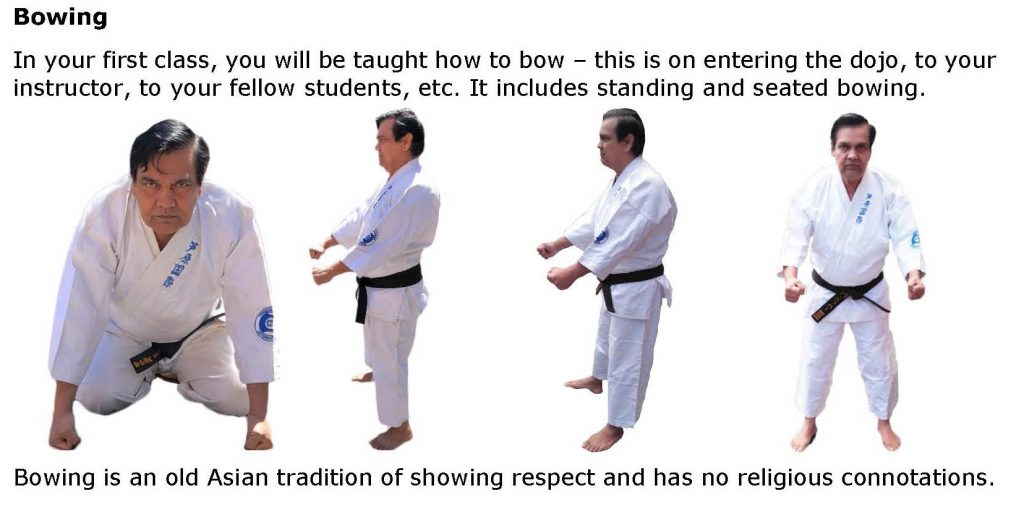The Meaning of Bowing
What is the meaning of Bowing? Why Bow? “Rei de Hajimari Rei de Owari” – Karate begins and ends with courtesy
We hope that the following points will give the student an insight into the rituals, etc. of Ashihara Karate so as to obtain a better understanding. Your training at the dojo is partly steeped in tradition and ritual and some of our customs may be subject to misinterpretation. Confusion sometimes arises over the significance of the Shin Zen (Shinden) and the purpose of bowing and kneeling.
The Shin Zen has absolutely no religious meeting, but merely serves as the ceremonial centre of the dojo. As you know, respect is a cornerstone of not only Ashihara Karate, but all other Martial Arts. Respect for the dojo, instructors, fellow students, and most important of all yourself. Bowing is a gesture which serves as an external manifestation of this respect. When we bow to the dojo, we need a symbolic centre to which we direct this gesture of respect and appreciation.. The Shin Zen serves this purpose by representing the symbolic centre of the dojo’s total essence. This is the Shin Zen’s sole significance.
Bowing, as mentioned above is external manifestation of respect. It connotes appreciation and courtesy and in no way is associated with an attitude of subservience. Instructors bow to Juniors as well as Students to Instructors, and Seniors bow to Juniors as well as Juniors to Seniors. Respect and appreciation flows both ways.
Kneeling down to meditate and to begin and end each class is sometimes also misunderstood. The very idea of kneeling or dropping to one’s knees is often thought of as a gesture of subservience. It is important to realise that in the Japanese society, as in other Oriental Societies, kneeling is merely a common way of sitting. People kneel to eat, converse and carry on many normal activities. To kneel down is in oriental parlance, to sit down. However, if any student do find this position objectionable, they are welcome to sit with their legs crossed.
Ashihara Karate seeks neither to support or interfere with a student’s practice of his or her religious faith. Ashihara’s goals are the attainment of a strong mind and body and the integration of the two.



 D5 Creation
D5 Creation